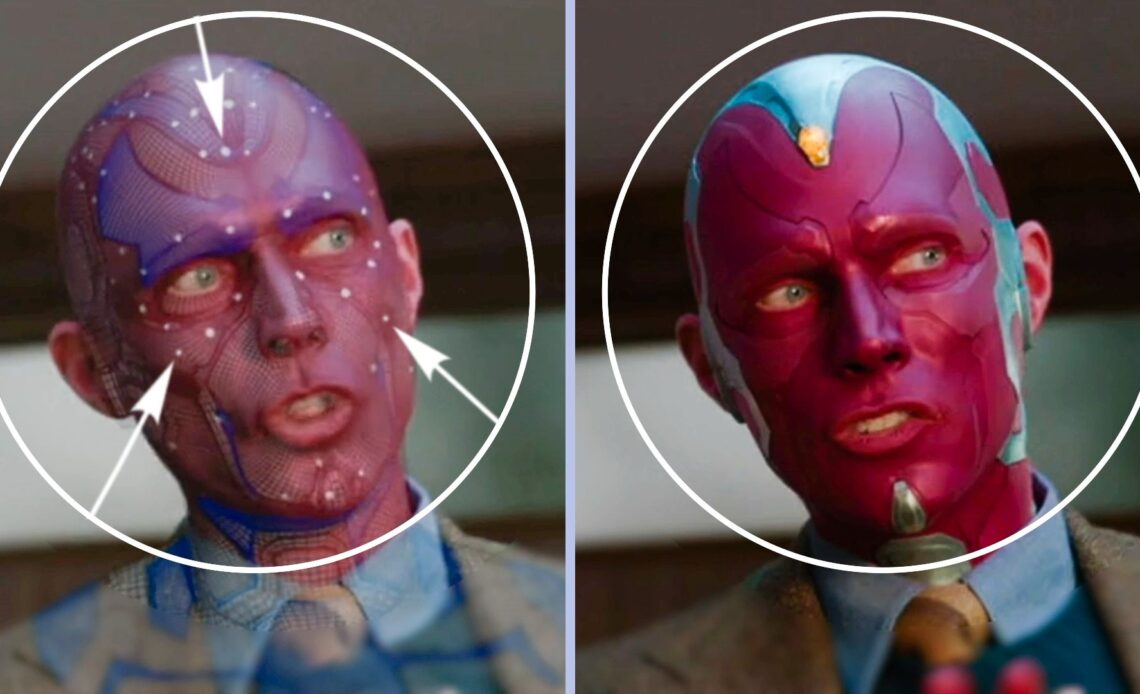
Lights, camera, deepfakes! Hollywood, the epitome of glitz and glamour, is no stranger to pushing boundaries and embracing technological advancements. As AI and deepfake technology continue to evolve at a breakneck pace, the entertainment industry finds itself at a crossroads of excitement and trepidation. Over the past few years, fans of Hollywood films have been subjected to some visual scrutiny. It was The Mandalorian’s season 2 finale which introduced an AI-generated young Luke Skywalker who looked like he was made out of rubber. Just recently, watching The Flash in the cinemas was yet another painful experience due to the jarring VFX effects which were later revealed to be generated and enhanced with the contribution of AI. Let’s embark on a whimsical exploration of the potential negative impacts of AI and deep fakes on Hollywood, where reality and fiction dance a delicate tango.
The Uncanny Valley of Illusions
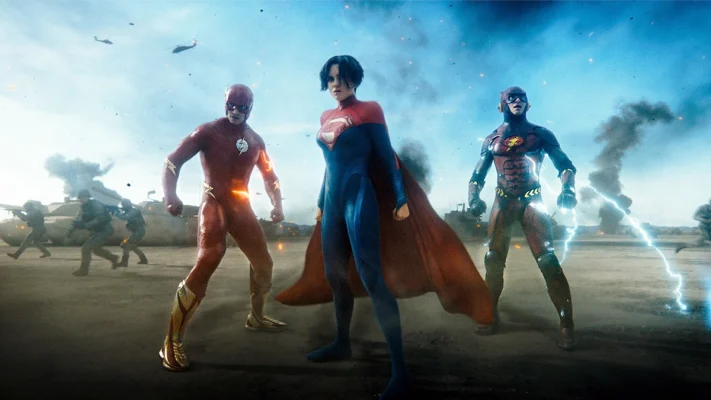
Deepfake technology, with its ability to seamlessly replace one face with another, offers limitless possibilities for storytelling. But what happens when we can no longer trust our eyes? Picture an audience bewildered, desperately trying to distinguish between a genuine actor and a hyper-realistic AI-generated doppelgänger. We’ve already had glimpses of this phenomenon when Hollywood flirted with deep fakes in films like “Rogue One: A Star Wars Story,” where the late Peter Cushing was digitally resurrected as Grand Moff Tarkin. While the visual effects were impressive, it left us pondering, “Was that truly Peter Cushing, or just an impeccably crafted digital resurrection?” Rogue One’s implementation of AI to recreate human characters opened a can of worms in Hollywood. In my opinion, recreating Christopher Reeves’ Superman with the help of AI for the finale sequence in The Flash was inhuman, as the actor passed away long back. The line between the real and the virtual is becoming blurred, treading dangerously close to the dreaded ‘uncanny valley.’
The Rise of AI Directors
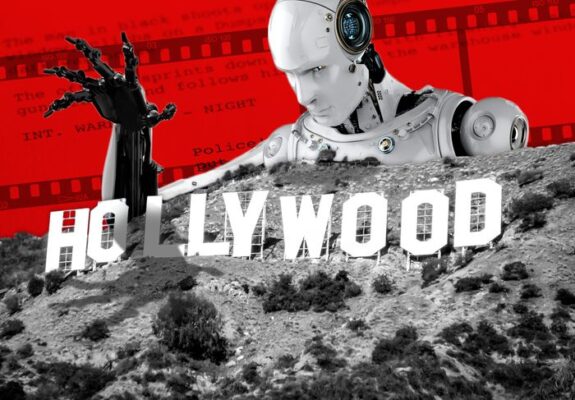
Imagine a future where a robot director, clad in a bowtie and wielding a pocket protector, calls the shots in a Hollywood boardroom. Armed with sophisticated algorithms and an encyclopedic knowledge of film history, this artificial auteur analyzes audience preferences and calculates the perfect formula for blockbuster success. Who needs human intuition when a machine can predict it all? As AI-powered filmmakers emerge, we may find ourselves questioning the very essence of auteurship. Will we witness an Oscar-winning film directed by a machine, with acceptance speeches consisting of lines of binary code? While the thought may be met with a mix of humour and scepticism, it raises intriguing questions about the convergence of creativity and artificial intelligence.
A Deepfake Renaissance
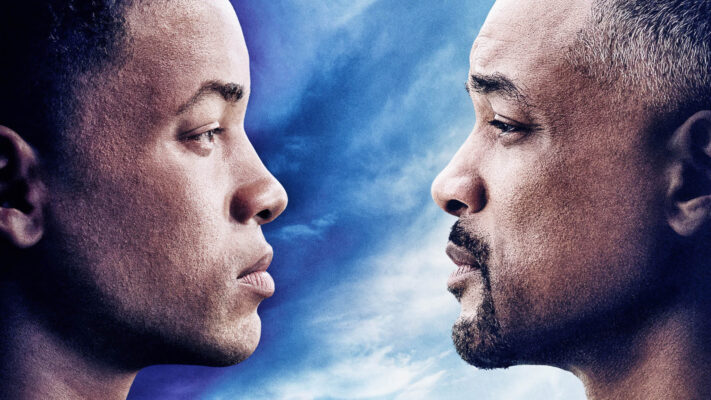
The allure of deep fakes goes beyond mere facial manipulation. With AI mastering the art of mimicking an actor’s voice, performances can be fabricated entirely. Imagine an AI algorithm breathing life into Marlon Brando’s iconic voice, delivering new lines that the virtual Brando himself improvises. Suddenly, the entertainment industry is flooded with beloved actors who never age, never retire, and whose performances can be resurrected long after they’ve left the stage. While the concept is undeniably fascinating, it also raises concerns about the boundaries between homage and identity theft, blurring the line between authenticity and deception. Will we find ourselves in a world where film historians debate whether a specific performance was by the real Al Pacino or his AI-generated counterpart?
Stunt Doubles Out of Work
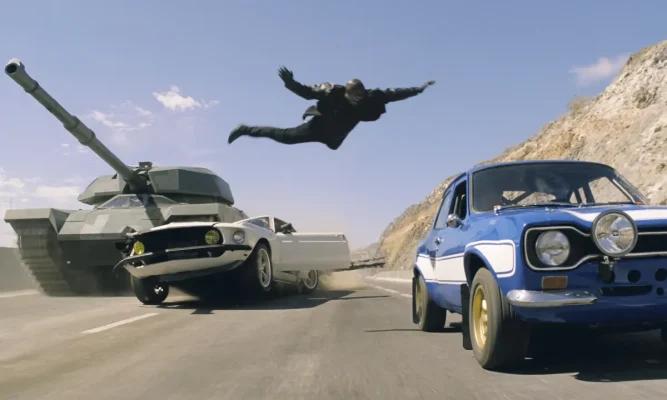
Action-packed movies have traditionally relied on fearless stunt performers to bring jaw-dropping sequences to life. However, with AI and motion-capture technology advancements, we may witness the rise of digital daredevils. Envision a world where Tom Cruise’s digital alter ego defies gravity without breaking a sweat, leaving the real Tom Cruise comfortably perched on a green-screened sofa, sipping a virtual piña colada. While it may save lives and production costs, it risks turning Hollywood into a realm where danger is pixelated, and the adrenaline of real stunts becomes a distant memory. Are we ready for a world where the only risk involved is a computer crashing mid-action sequence, resulting in a catastrophic outbreak of virtual chaos?
As AI and deep fake technology continue to evolve, their impact on Hollywood and the entertainment industry cannot be ignored. From the blurred lines of reality to the potential replacement of human creativity, the quirky perils of this new era invite both excitement and unease. While we might chuckle at the thought of an AI director or marvel at digital actors defying the laws of physics, it is crucial to reflect on the delicate balance between innovation and preserving the human touch. In this brave new world, we can utilize AI and deep fake technology as valuable tools without sacrificing the essence of the art form that has captivated audiences for over a century.

